
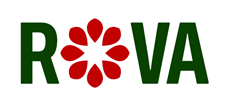
The ROVA project aims to support Roma and pro-Roma civil society to become more effective and resourceful in their promotion of EU values. The project will support 120 local Roma and pro-Roma civil society organisations and 15 national Roma coalitions in Spain, Hungary, Romania, Bulgaria, Czech Republic, Slovakia and across the EU through grants and […]

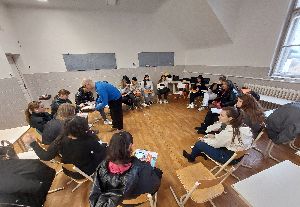
Through the RISE programme – a collaboration with our long-time partner Caritas Alba Iulia from Romania – we are working to reduce early school leaving among disadvantaged, primarily Roma, young people. Launched in April 2024, the two-year project focuses on mentoring and skills development, building on the Foundation’s tried and tested methods. The programme takes […]

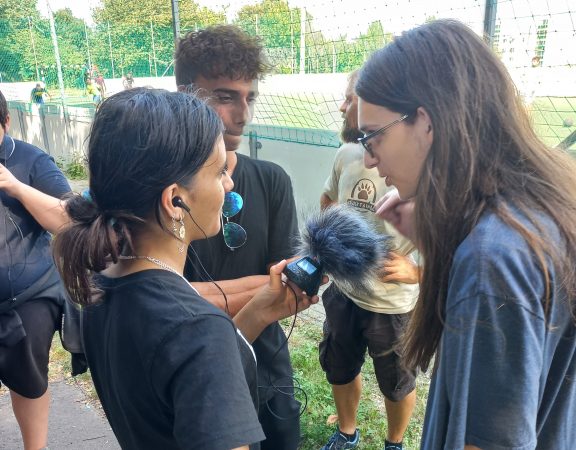
Our programme aims to strengthen local youth communities and encourage cooperation between Roma and non-Roma young people. The project will run inclusive development programmes in six cities in Hungary and Romania, involving Roma and non-Roma young people aged 14-20 living in segregated settlements and other parts of the municipalities. The young people will produce creative […]
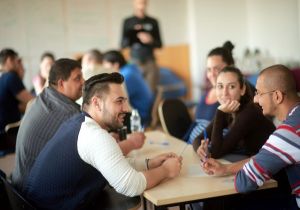
The project is a new approach for Roma inclusion through promoting employment on the primary labour market, in the private sector. The main idea of the project is to facilitate access of secondary and university level educated Roma to quality, white-collar jobs at private companies, which are usually non-accessible for most of Roma. The concept […]
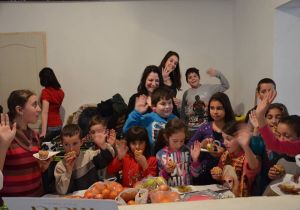
The aim of the project is to eliminate the physical and mental segregation of the Roma community of Szúcs-Bagoly-lyuk settlement. The former miner settlement (appr. 300 habitants, 40 houses) located in the Northern part of Hungary is a typical Roma ghetto with its ‘typical’ social-economic problems. The habitants are excluded not only from the Hungarian […]

In the frame of the ‘Gamification 4 Inclusion and Active Citizenship’ project (2017-3-HU01-KA205-046883) we have developed the methodology of social detective games in the last years in professional cooperation with the Detectivity. In the creation of the methodology and its international dissemination our international partners: Institouto Erevnon PROMITHEAS from Cyprus, Infinite Opportunities Association from Bulgaria […]
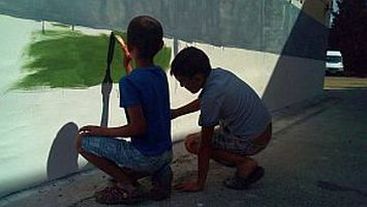
This project aims regions that are densely populated with disadvantaged groups, and where community co-operation can lead to dialogue and co-operation with public institutions. The main aim of the project is to make public services better and more accessible to the locals. Our goal is to advance issues important to groups with weak advocacy capacity […]
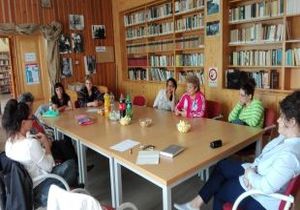
The project is based on Autonomia’s earlier evaluation of the implementation of the National Roma Integration Strategy’s (NRIS) in Hungary and on the experiences of project generation with local project promoters. In the project we help the implementation of the Strategy’s objectives, the effective use of EU development funds for integration projects at local level. […]
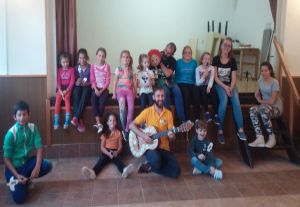
2016 April 28 — 2017 April 30
In today’s Hungarian society, integrated communities are scarce, consequently cooperation between the Roma and non-Roma communities is even harder to find. In villages where there is no common workplace, community activities are rare, education is segregated, or actually the whole village is only inhabited by Roma, it is immensely hard to build bridges between the […]
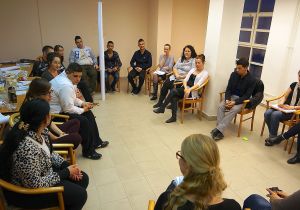
The aim of the program is to help educated young Roma to find employment in the private sector, at major companies, primarily in administrative positions. The initiative is born from a cooperation of the Boston Consulting Group and Autonomia Foundation. Our partners are various large firms open to hire more Roma employees. We help the […]
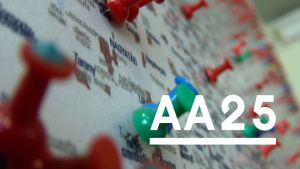
Our foundation was created at almost the same time as the End of Communism in Hungary. Autonomia was one of the first independent foundation, which initiated Roma and NGO development programs. Although it is almost impossible to show everything about the last 25 years of Autonomia, but we wanted to give a little insight about […]
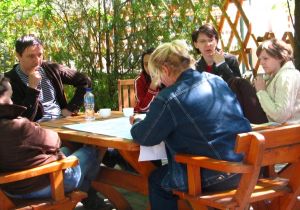
Why is this program needed? Surveys in Hungary have shown that only a fraction of the European funds targeting Roma integration reach the localities where most of the Roma live. What is the goal of this program? One of the goals is to bring these funds closer to the Roma communities. Our staff helps the […]
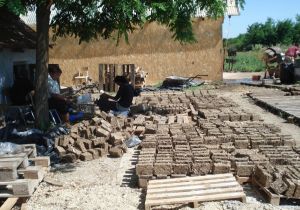
The Autonomia Foundation and the Open Society Institute 2012 1 st of May started the Supplementary Fund (SF) program. The SF is mainly offered for the project owner participating or willing to take part in the PGF or the Mentoring project of Autonomia Foundation. The aim of the program is to offer solutions for […]
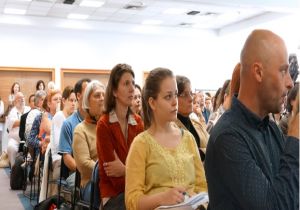
2010 March 31 — 2014 April 30
An aid program has began in 2010 in Hungary in order to promote the integration of people living in deep poverty and to reduce the deepening, reproduction and territorial spread of deep poverty. The above objectives are planned to be achieved by the development of local community relations, by the adaptation of certain public services […]
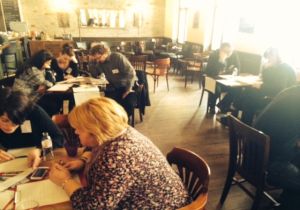
2012 May 31 — 2014 April 30
A Polgármesterek EU forrásokkal a romák integrációjáért program egy hálózati együttműködés. Olyan magyarországi településeket, polgármestereket fog egybe, akik a romák befogadása terén jó gyakorlatokkal rendelkeznek, illetve helyi tevékenységeiket szeretnék továbbfejleszteni. A program hátterét az a felismerés adta, hogy a Strukturális Alapok forrásai kevéssé jutnak el lokális szintre, ez fokozottan érvényes a társadalmi kirekesztettség terén. Az […]
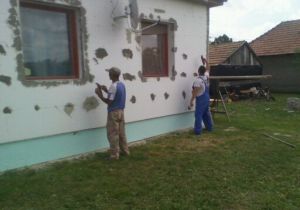
Summary of the project Individual saving programme for low-income non-bankable people – amongst them Roma and young grown-ups of state care institutions. The goal of the savings is to improve the housing situation of the clients. The savings of the clients will be matched with a grant (based on IDA methodology). Clients are also eligible […]

2004 December 31 — 2009 November 30
Az EQUAL program A BRIDGE projekt az EQUAL Közösségi Kezdeményezés támogatásával valósulhatott meg.Az EQUAL program célja olyan innovatív megközelítések és módszerek kidolgozása és elterjesztése, amelyek hozzájárulnak a munkaerőpiachoz kapcsolódó diszkrimináció és egyenlőtlenségek megszüntetéséhez. A közösségi kezdeményezésről bõvebben: www.equalhungary.hu Az Equal-Bridge projekt eredményeit bemutató honlap:www.equal-bridge.hu A BRIDGE projekt A BRIDGE program Borsod-Abaúj-Zemplén megyében, a Cserehát térségében […]

2008 November 30 — 2009 October 31
Summary of the project: The aim of the project is to create corporate social responsibility strategies that reflect the social micro-environment of the company and relate to social integration. CSR strategy planning is facilitated to allow active participation of the employees and to create strategies that go beyond donations. Working with three big companies, with […]
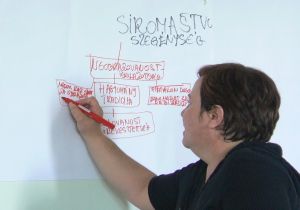
Szerbiában egyre több civilszervezet jön létre, melyek hozzájárulnak egy egészségesebb és plurális társadalom létrejöttéhez. Ezen civil szervezetek között, Vajdaság szerte már több mint 100 romaszervezet található. Ezek a romaszervezetek legtöbbször a semmibõl építkeznek, küzdenek meg a kisebbségi lét nehézségeivel úgy, hogy közben azok sincsenek feléjük bizalommal, akikkel – legyenek azok szerbek vagy magyarok – egy […]
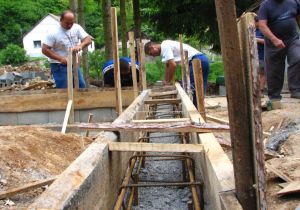
2001 December 31 — 2004 November 30
A Program indokoltsága, előzményei Borsod-Abaúj-Zemplén megye Magyarország észak-keleti régiójában található, az ország gazdaságilag egyik legelmaradottabb térsége. A '90-es évek elején a nagyipari vállaltok bezárásával a munkahelyek többsége is megszűnt, és csak nagyon kis számban jöttek létre újak. A térségben a roma lakosok aránya az országos átlagot jóval meghaladó (10,8%), a magyarországi roma lakosság közel 20-25%-a […]
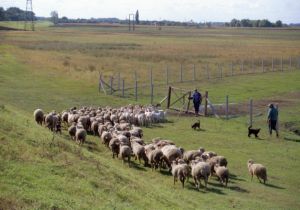
A program célja és a megvalósítás helyszíne Az Autonómia Alapítvány 2000-ben indította el új, háromszintű fejlesztő programját, amely az 1998-ban elindított Saját Konyhakert és az 1999-ben elindított Kertészet 2000 elnevezésű programok folytatása. A Roma Mezőgazdasági Fejlesztő Program keretében támogatást nyújtunk társadalmi szervezeteknek, roma emberek önálló gazdasági tevékenységének elősegítéséhez. A pályázati rendszer célja, hogy a támogatott […]

A program célja és a megvalósítás helyszíne Magyarországon – csakúgy, mint bárhol másutt a világban – a gazdaságilag, társadalmilag és környezetileg fenntartható fejlődés ügye főleg a zöld mozgalomban aktívan résztevő értelmiségieket érdekli. A globális trendek megértését, majd a bolygó sorsáért való felelősségvállalást, és az ezért hozott áldozatvállalást irreális azoktól elvárni, akik a társadalom peremén élnek, […]
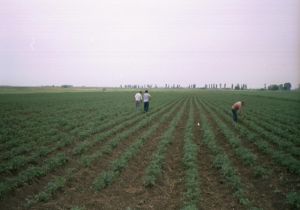
A program célja és a megvalósítás helyszíne Az Autonómia Alapítvány a korábbi évek tapasztalatainak felhasználásával olyan támogatásosztó programot dolgozott ki, amely céljai szerint: azoknak a roma családoknak kíván segítséget nyújtani, amelyek rendelkeznek egy intenzív kultúrás mezőgazdasági termelés alapfeltételeivel (elegendő termőföld tulajdon, vagy bérlet; alapszintű szakismeret és tapasztalat; részvételi szándék a programban); két éven keresztül segíti […]
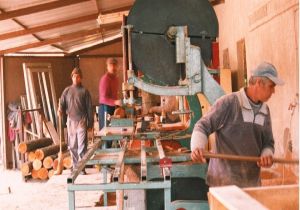
A program célja és a megvalósítás helyszíne A Roma Kisüzemi Program az Autonómia Alapítvány, fejlesztő, többszintes pályázati struktúrájába tartozik. Elődleges célja, hogy roma szervezetek gazdasági vállalkozásaihoz nyújtson segítséget, illetve a munkaerő-piaci képzések „folytatásaként” ilyen jellegű programok elindításához nyújtson támogatást. A Roma Kisüzemi Programra azok a szervezetek pályázhatnak, amelyek vagy az Autonómia Alapítvány, vagy más intézmény […]
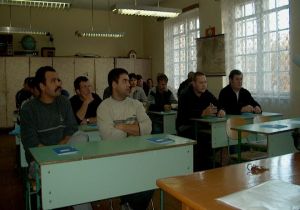
A program célja és a megvalósítás helyszíne A program céljaként alapítványunk a romák munkaerő-piaci helyzetének javítását; munkaerő-piaci integrációjuk, re-integrációjuk elősegítését tűzte ki roma szervezetek által szervezett, lebonyolított képzések és ezt kiegészítő foglalkoztatási projektek segítségével. Az Autonómia Alapítvány 2000-től kezdődően minden évben meghirdeti munkaerő-piaci képzési pályázatát, melynek támogatottjai kizárólag roma civil szervezetek lehetnek. Az idáig lezárult […]